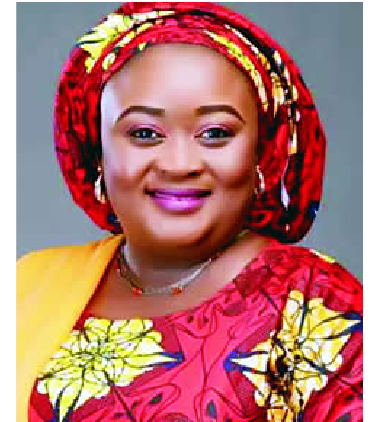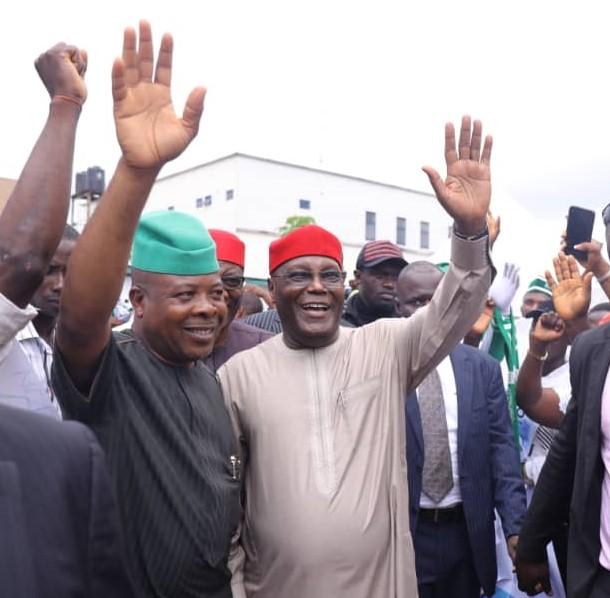Ms Priscilla Ankut is the pioneer executive vice-chair/ chief executive officer of the Kaduna Peace Commission. In this interview with ISRAEL BULUS, she spoke extensively on the measures put in place by the Commission, to bring an end to the lingering Southern Kaduna crisis.
Southern Kaduna’s lingering killings have placed the region on the global map. What is the Peace Commission doing to bring an end to the killings?
I don’t know how much you know about the Peace Commission, but it was established in 2017 by His Excellency Malam Nasir el-Rufai the Governor of Kaduna State. If you read the law that established the Peace Commission you will realise the intention behind the Peace Commission. It was to continue to establish structures, monitoring and reporting signs of conflict very early, in order for the government to take preventive action. So, the Commission if you study the law properly, was intended to present a paradigm shift from the way conflict and violence have been managed in Kaduna State in the past, so that we can focus on efforts that are preventive and efforts that can strengthen structures for dialogue, mediation and negotiations that will promote peaceful and harmonious society within the length and breath of Kaduna.
So, the intention wasn’t just focusing on Southern Kaduna issue, but the state at large. For almost 40-years, Southern Kaduna has always been the epicentre of violence. It is cyclical in nature, sometimes it erupts at certain times and you have respite for a while and there is a trigger again and there is another eruption. And with these kinds of the cycle of violence, we have experienced in the state, lots of lives have been destroyed. My heart bleeds anytime I think about that, properties worth billions of naira destroyed, cattle rustled, but perhaps the greatest tragedy is the weakening of the social fabric in our society, with each episode of violence, trust has taken a hit, mutual suspicion between different identities and rebuilding cohesion has been a challenge.
There is a clear mutual suspicion and breach of trust between the two dominant religions in the state. What are some of the practical steps the Peace Commission is putting in place to rebuild trust and confidence among the people?
I am one of those who firmly believe that the two dominant religions in the state, both Christianity and Islam have a strong proclivity toward peace. They both preach peace if you take them as they’re given to us in the Holy Books. I am often reluctant to say the problem is with religion itself. Perhaps, the problem is with the misinterpretation of religion by the different religious actors and sometimes manipulation of religion by actors who want to cause chaos for their selfish gains. If you look at our state from 2011 for example, a lot of the politics has happened to actively mobilise ethnic-religious sentiments by politicians across the divides. For us as a Peace Commission we think and believe strongly that religious actors can play a role in helping rebuild trust and overcome mutual suspicion, but not to put too much in their hands because there are lots of stakeholders and variables that are involved.
One of the efforts that we have done is engaging stakeholders starting with our consultations with CAN, JNI, in the process of developing strategic plans for the Peace Commission. We have invested in capacity building and training for religious leaders as well as to help them understand the dynamics of conflict and to help them conduct the mediation in the event where there are problems, just to give them basic skills to enhance their capacity. They’re all trained as religious leaders and each religious leader by reason of just the position they’re occupying, have been called upon to mediate whenever there are conflicts of all kinds. Very recently, we took it a step higher and inaugurated what we call the House of Kaduna Family, consisting of the leadership of different groups and Muslim groups. The family House of Kaduna draws its participation from heads of denominations in Christianity and heads of Islamic sects in Islam.
The group was carefully selected based on their own credentials, in our view, they’re people with integrity and well respected in their constituency. And people who will speak truth to power and they can be able to speak to their own followers.
You have identified some of the root causes of Southern Kaduna’s lingering crises and you talk about enlightening different groups on ethnic and religious tolerance, how would you assess the responses?
Well, with Peace Commission I have to say the responses have been well received by different groups, actors and different stakeholders. In all the consultation that we have held and established, there is no group that we have invited to come to the table that have not accepted to come to the table. And this tells me that people are willing to talk and are determined to break the legacy of violence that they have been experiencing. I am very encouraged with the responses of different groups so far. We have spoken to different stakeholders across religious, ethnic and even political divides and we will continue to engage and speak because we are a listening Commission, we are encouraged with that reception. Even though many feel we need to do more and I agree with them that we need to do more as a Peace Commission. But also in collaboration with our stakeholders, a lot of different groups, stakeholders have been working round the clock to ensure that there is peace in the state, particularly in the past few months with our focus in Southern Kaduna. But is not nearly enough, so, we need to continue to do more.
So many peace summits and peace pacts have taken place in Southern Kaduna yet the attacks and killings still persist, what could the problem be?
Well, when you say so many peace pacts, I think to the best of my knowledge in the last months there have been two summits. One was the Atyap Chiefdom Peace and Reconciliation Summit and the other was the Southern Kaduna Peace Summit that held a couple of weeks ago. I think the question you should be asking is what was the intention behind the summit? Whether the situation in Southern Kaduna can be fixed by one summit or the other? The summit helps in creating a safe space for people to discuss their issues and find solutions rather than resort to violence. The summits are part of a longer process that will bring lasting peace. I do not think they are intended to be one step solution to the whole problems that we are having in the area. Peacebuilding is a process, sometimes it takes days, months and years.
In some instances 10, 20 and 30 years, we have to understand that perspective. The second one is that what the peace summits have done is to ensure that we are willing to look at alternative ways of addressing the situation. And if you look closely at those summits, they were just collaborative effort of stakeholders, the security agencies were represented, religious leaders, farming community, herding community, youth groups and women were all brought together to shape the future and ensure peace. As you said, attacks keep occurring and those criminal activities. Everyone has been working and I acknowledge all the effort that has been going on. I keep saying no effort is too small, no effort is too big as long as we have this shared vision of transforming our society into a peaceful one with mutual respect and mutual co-existence among different groups and individuals. I intend to keep the conversation going. The two summits that took place have come up with far-reaching recommendations that will contribute in making decisions.
Recently, the Southern Kaduna Christian leaders, CAN and SOKAPU boycotted the NCPC Peace Summit in Kafanchan. They said they were not involved in the process, what is your reaction to this development?
Well, I think, first and foremost, I do not know what reasons they had for boycotting the summit. But I do know these groups, and in my mind boycotting the summit does not mean that they do not want peace. I know some of these groups that have invested their time also in seeking for peaceful coexistence in the state, so, I do not want to speculate why they were not able to attend the summit. It could be reasons of timing. Whatever their reasons might be, I do know that there is continuous engagements even with the summit organisers, the Peace Commission and other agencies that are working for peace. Ultimately the people of Kaduna State are looking for the same thing, probably there is a bit of disagreement as to how to get there, but ultimately everybody wants a peaceful state, everybody wants the violence to stop. I want to believe that people want the violence to stop. I want to believe that people want an end to the criminal activities that are disturbing the state and there has to be ways of engaging it.
One of the resolutions of the NCPC Peace Summit is that there should be the presence of both federal and state infrastructures in the region. Also before now, the people of Southern Kaduna, have been yearning for a state of their own which they believe will end the killings in the area. Do you support the creation of Gurara State?
Well, when an expectation like that is aired it should be channelled through the right authorities, in this case through the elected representatives of the state either at the state or federal levels. The process of state creation is through a constitutional amendment. We know how complex constitutional amendments can be, every group not just in Southern Kaduna but across the length and breadth of Nigeria where they have legitimate aspirations. Our advice is that they should follow the
lawful process, the constitutional process of addressing this kind of aspirations. The second thing is the challenge of insecurity, it is not unique to Southern Kaduna, neither is it unique to Kaduna State. In fact it is not unique to Northern Nigeria. The country is facing security challenges, will the answer to the security challenge lie In the creation of more states, I don’t know?
As the pioneer Executive Secretary Kaduna Peace Commission, what do you intend to achieve considering the myriad of security challenges in the state?
Well, like I said, the Peace Commission is the first of its kind, Kaduna is the only state with Peace Commission. Plateau has Plateau Peace Building Agency, which operates similar to what we have. The challenge that I have is how to develop from nothing to something that will make a meaningful impact in the lives of the people. And realistically, I come from a development background where my experience has been implementing projects, seeing them from inception to maturity and translating them into result for the people. When I came in as the chief executive officer, I was handed over the law establishing the Peace Commission.
So, the first thing is how do you build an Institution from scratch? In the last two years, we have set-up an Institutional framework with a fully operational structure in place,
and we have set-up local government peace committees and we have Staff
in place. My second measure of success is that by the end of my tenure, we would have a fully functional state operational structure that is working for peace.









